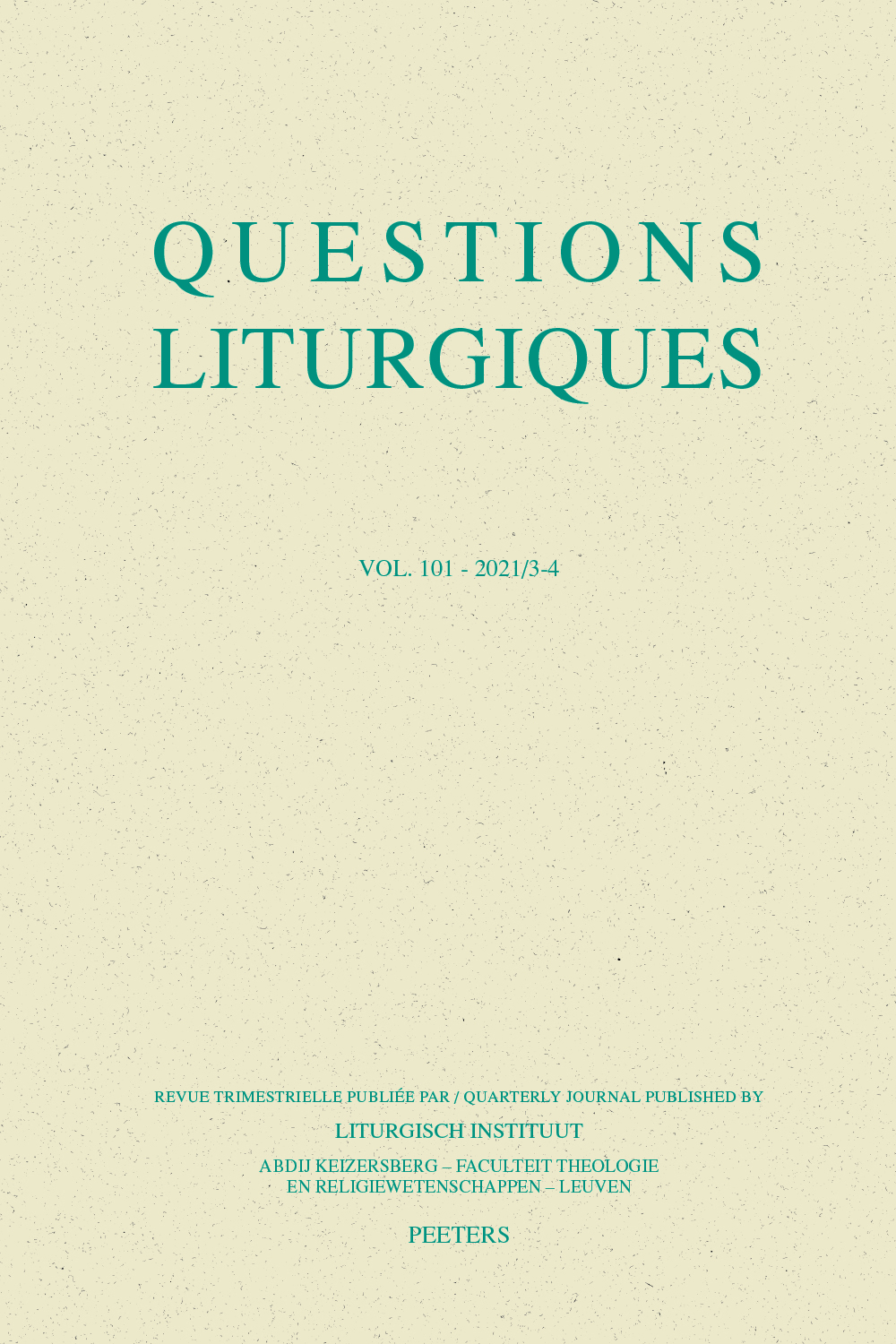next article in this issue  |

Preview first page |
Document Details : Title: Le «tout» dans les «parties» Subtitle: Pensées «non pensées» de J.A. Möhler sur la sacramentalité Author(s): CARDITA, Ângelo Journal: Questions Liturgiques/Studies in Liturgy Volume: 91 Issue: 3 Date: 2010 Pages: 105-117 DOI: 10.2143/QL.91.3.2056260 Abstract : Le théologien allemand, J.A. Möhler (1796-1838), n’a jamais accompli son désir d’écrire une oeuvre sur les sacrements. Cependant, il nous a laissé deux grandes perspectives sur le sujet. Dans Die Einheit, la liturgie est l’oeuvre de la liberté de l’Esprit de Dieu trouvant les impulsions religieuses des êtres humains; dans Symbolik, l’eucharistie représente la continuelle présence du Christ dans ce monde à travers de l’Église, conçue comme le «prolongement» de son incarnation. Acceptant le fait que Möhler a «hésité» parmi une liturgie pneumatologique et une ecclésiologie eucharistique, tout en recherchant leur coordination profonde, dans cet article on montrera comment une telle coordination se retrouve dans une considération herméneutique-symbolique des sacrements et de la liturgie, selon le principe romantique, approprié par le même Möhler, de la réalisation de «tout» dans les «parties». The German theologian J.A. Möhler (1796-1838) never accomplished his desire of writing a work about the sacraments. Nevertheless, he offered us two important perspectives on the topic. Whereas in Die Einheit, the liturgy is the work of the Holy Spirit’s freedom which encounters the human religious impulses, the Eucharist represents in Symbolik the permanent presence of Christ within this world through the Church as the 'prolongation' of his incarnation. Agreeing with the fact that Möhler apparently hesitated between a pneumatological liturgy and a Eucharistic ecclesiology, while at the same time exploring their profound convergence, this article argues that this convergence can or should be complemented by a symbolical hermeneutics of worship and sacraments. This can be done according to the famous romantic principle, appropriated by Möhler himself, of the realization of the 'whole' in many 'parts'. |
|


